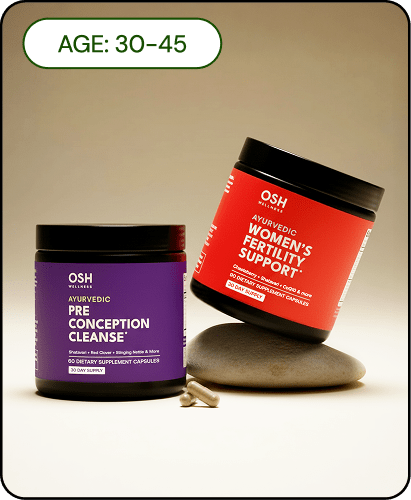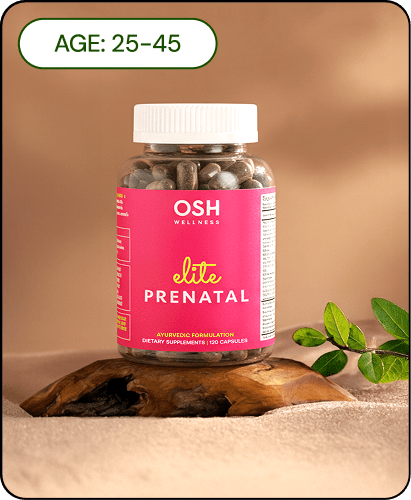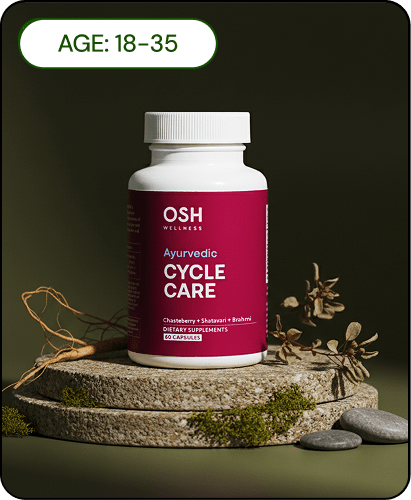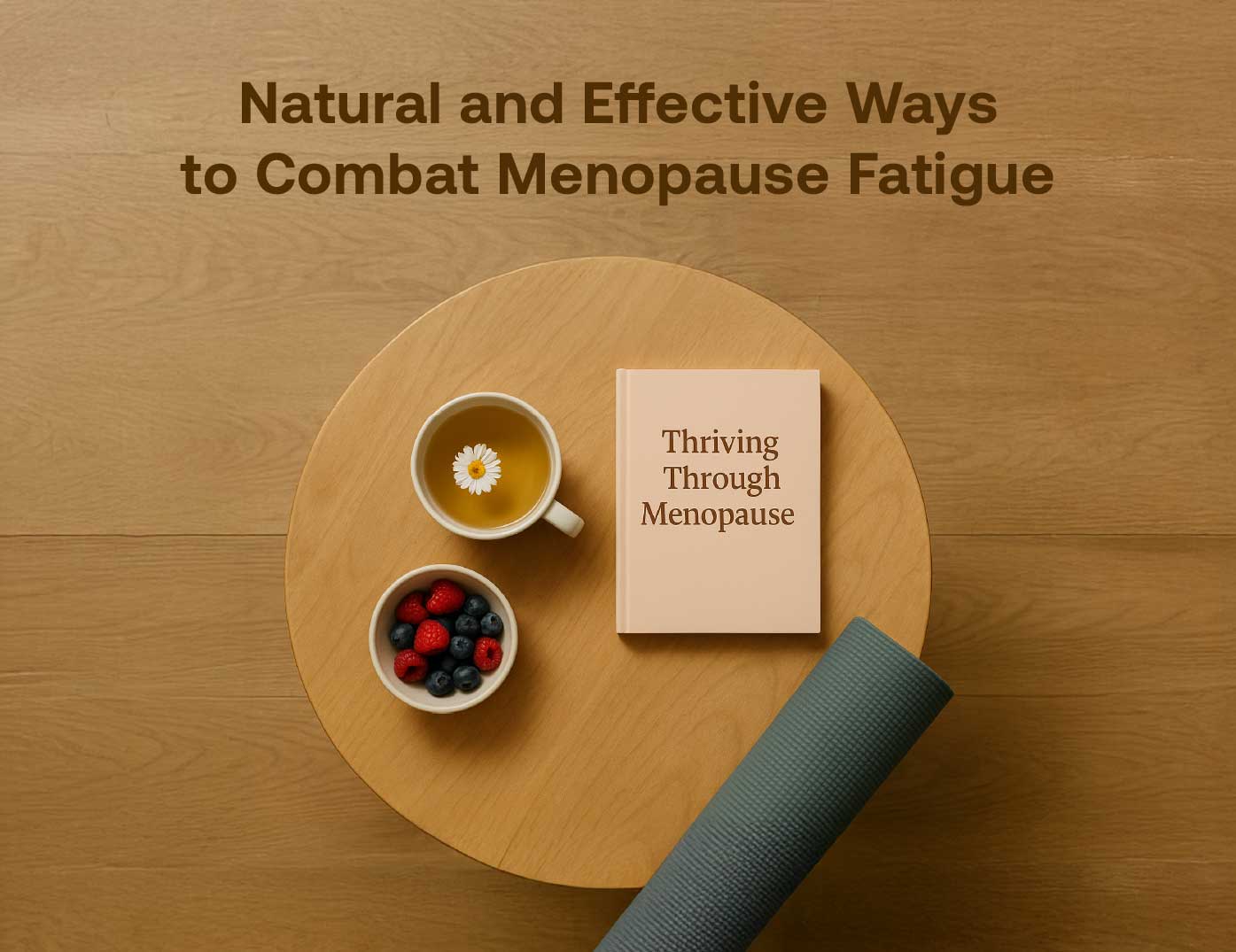Table of contents
Menopause fatigue can significantly impact the quality of life for women aged 40–60, manifesting as profound exhaustion unrelated to physical activity or rest. This condition develops during a critical transitional phase marked by hormonal changes and emotional shifts. Understanding its root causes is essential for managing fatigue effectively. In recent years, many women have turned to natural, caffeine-free approaches to alleviate their symptoms. This article explores evidence-based lifestyle modifications, nutritional strategies, and herbal remedies to restore energy and enhance well-being during menopause.
Understanding Menopause Fatigue

Menopause fatigue is a widespread but often misunderstood symptom that affects many women during their transition. At its core is a series of physiological changes, particularly the decline in estrogen levels that interrupt key bodily functions such as sleep regulation and energy production. Research shows that lower estrogen disrupts neurotransmitter levels, specifically serotonin and dopamine, influencing mood and wakefulness [1].
Psychological factors compound this fatigue. Elevated levels of stress and anxiety are common and can worsen feelings of exhaustion. Studies indicate that around 60% of menopausal women face sleep disturbances, including insomnia and frequent awakenings, which directly contribute to daytime fatigue and impaired memory [2].
Mood disorders during menopause, such as depression and irritability, also intensify fatigue symptoms. The Study of Women’s Health Across the Nation found that psychological challenges during this phase amplify fatigue’s impact and slow recovery [3]. Thus, managing both hormonal imbalances and emotional wellness is key to regaining energy during menopause.
Lifestyle Adjustments for Enhancing Energy

Fatigue during menopause can make everyday life feel overwhelming. However, simple and sustainable lifestyle strategies can offer immediate and long-term relief.
Physical Activity: Engaging in exercise like brisk walking, swimming, or yoga for at least 30 minutes most days enhances energy and improves mood by releasing endorphins. Pilates also supports sleep patterns and physical balance in postmenopausal women [4].
Sleep Hygiene: Adopting a consistent sleep schedule and creating an optimal bedroom setting, cool, dark, and screen-free, can dramatically improve sleep quality. Avoiding stimulants like caffeine and large meals before bed helps regulate sleep cycles [5].
Mindfulness & Stress Reduction: Practices like meditation, deep breathing, and yoga reduce stress levels and improve both energy and quality of life [6]. Exposure to natural light early in the day also supports healthy circadian rhythms.
Together, these changes form a foundation for reclaiming energy and navigating the midlife phase with resilience and vitality.
Nutritional Strategies for Well-Being

A nutrient-rich diet can help manage menopausal fatigue by supporting bone health, mood stability, and energy regulation. A well-balanced meal plan should include:
Fruits & Vegetables: Rich in antioxidants and fiber, they support digestion and cellular health [7].
High-Quality Proteins: Lean meat, beans, and legumes provide amino acids needed for muscle strength and metabolism.
Healthy Fats: Omega-3s from sources like fish, nuts, and avocados improve cognitive function and mood.
Whole Grains: These complex carbs offer steady energy and support hormone health through B vitamins and minerals [11].
Key nutrients to focus on include:
Calcium: Aim for 1,200 mg/day from dairy, leafy greens, beans, or fish with bones to offset bone density loss [8].
Vitamin D: This vitamin enhances calcium absorption and helps balance immune and mood functions. Sunlight, fatty fish, and fortified foods are ideal sources, though supplements may be necessary [9].
Also, maintaining hydration is critical for energy and effective digestion. Avoiding added sugars and processed foods can reduce energy crashes and mood swings [10].
Herbal Remedies for Menopause Fatigue

Many women explore herbal alternatives to relieve menopause-related fatigue. Two notable options include Black Cohosh and Rhodiola Rosea:
Black Cohosh: Primarily used for hot flashes, its fatigue-relieving effects are debated. While some reviews cite minor benefits, a 2012 Cochrane review found insufficient proof against placebo [12]. The NIH remains cautious due to possible side effects, such as digestive discomfort and rare liver issues [13].
Rhodiola Rosea: This adaptogen helps boost resilience to stress and combat general fatigue. Though studies on menopausal effects are limited, it is widely considered safe, with occasional adverse reactions like dizziness or nausea [14].
While these herbs offer promise, it’s vital to consult a healthcare provider for safety and suitability.
Technological Innovations in Managing Fatigue

Modern technology offers innovative tools to help women track, understand, and manage menopause symptoms like fatigue.
Caria App: This app tracks symptoms, offers guided mindfulness programs, and provides community support for better fatigue management [15.
Balance by Dr. Louise Newson: Includes symptom tracking, expert content, and sleep monitoring features to help identify energy patterns across the menopausal journey [16] .
Mindfulness Apps: Tools like Clarity and other guided breathing apps cater specifically to menopause symptoms and assist in stress reduction and sleep improvement [18].
Wearables: Devices such as Fitbit or Apple Watch track physical activity and sleep cycles to enable data-driven wellness decisions.
Integrating digital health platforms into your routine allows for personalized care and empowers women to take charge of their health trajectory during this crucial life phase.
Addressing Common Questions and Concerns

Many women wonder whether fatigue is just a normal part of aging. The answer is no. Hormonal shifts especially declining estrogen and progesterone, play a significant role in driving menopause fatigue. Studies show that over 85% of women experience fatigue as a prominent symptom during midlife [19].
Popular questions revolve around natural remedies and effective strategies. Backed by research, these include:
Exercise routines yoga, tai chi, and walking, to boost stamina and mood [20].
Nutritional practices, like eating smaller, well-timed meals rich in iron and B12, help combat energy dips [21].
Importantly, even mild fatigue deserves serious attention. Consulting with healthcare providers ensures the exclusion of other conditions, such as thyroid dysfunction or anemia, which can amplify fatigue [3]. Creating awareness around these facts enables better self-advocacy and proactive choices.
Relevant Products
Explore Osh Wellness Hormone & Mood Support , a thoughtfully formulated supplement designed to ease menopause symptoms like fatigue. It features a blend of natural ingredients that support energy, hormonal balance, and emotional wellness. Always seek medical advice before beginning a new supplement regimen.
Conclusions

Effectively managing menopause fatigue takes a holistic, multi-dimensional approach . Essential strategies include:
Lifestyle adjustments that prioritize sleep, stress management, and consistent physical activity
Nutritional support through whole foods and key nutrients like vitamin D and calcium
Herbal and technological solutions to personalize care and track progress
By staying informed and making empowered choices, women can restore vitality and navigate menopause with confidence and clarity.
FAQs
What are the most effective natural remedies for menopause fatigue?
Natural remedies include regular exercise (like walking or yoga), a balanced diet rich in B vitamins and iron, mindfulness practices (e.g., meditation, breathwork), and herbal support such as Rhodiola Rosea . Caffeine-free approaches and improved sleep hygiene are also highly effective.
How can I improve my sleep during menopause?
Stick to a consistent sleep schedule, avoid screens and heavy meals before bed, and keep your room cool and dark. Practices like evening yoga, guided meditations , or using sleep-focused apps (like Balance or Clarity) can enhance sleep quality.
What dietary changes can help with menopause symptoms?
Focus on whole foods , including leafy greens, berries, lean proteins, omega-3 fats, and complex carbs. Ensure adequate calcium (1,200 mg/day) and vitamin D , and reduce sugar and processed foods to minimize mood swings and energy crashes.
Are there any specific exercises that alleviate menopause fatigue?
Yes. Yoga, Pilates, tai chi, swimming, and brisk walking are all beneficial. These activities help balance hormones, improve sleep, boost endorphins, and reduce stress-related fatigue.
How long does menopause fatigue usually last?
Fatigue can persist throughout perimenopause and into postmenopause, typically lasting several months to a few years , depending on individual hormonal shifts and lifestyle factors. However, proper support can significantly reduce its intensity and duration.
Sources
1: North American Menopause Society - Are You Just Tired or Are You Menopause Tired?
2: Contemporary OB/GYN - Heavy Menstrual Bleeding Linked to Fatigue
3: University of Michigan - Abnormal Menstrual Bleeding and Fatigue
4: Hinge Health - Menopause Fatigue
5: Everyday Health - 8 Energy Boosters
6: Dr. Louise Newson - Tips to Boost Energy
7: Healthline - The Best Foods for Menopause
8: Nutrition.org - Managing Symptoms with Diet
9: EatRight - Nutrition and Menopause
10: Femme Pharma - Foods for Fatigue
11: Femme Pharma - Foods to Combat Fatigue
13: NIH - Black Cohosh: Health Professional Fact Sheet
14: Journal of Menopausal Health - Black Cohosh Safety
15: Apple - Caria Menopause & Midlife
16: Balance Menopause - Balance App
17: Healthy Women - App for Menopause
18: Positive Pause - Mindfulness Apps for Menopause
19: Medical News Today - Menopause Fatigue
20: North American Menopause Society - Menopause Fatigue
21: Healthline - Understanding Menopause Fatigue







